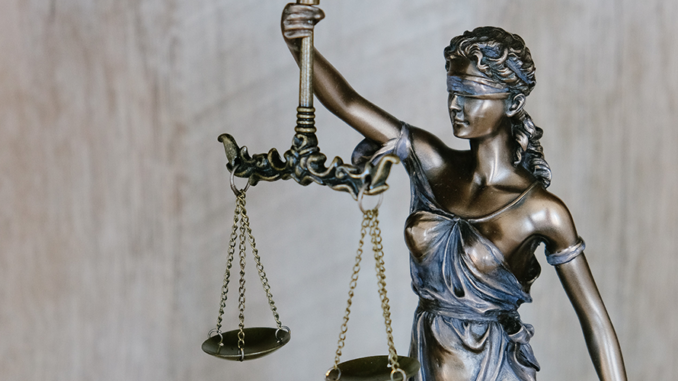
Among the many displacements wrought throughout Covid-19, many customers have left legacy banking for the world of cryptocurrencies and decentralised finance. Causes embody worry of contaminated money, mistrust of ballooning central bank balance sheets and the absence of significant curiosity on financial savings. The development is unlikely to abate.
Sadly, these new adopters will encounter a gamut of crimes for which they’re ill-prepared: hackers stealing passwords, fraudsters inducing irreversible transactions and exit scams, to call a couple of. If these similar crimes had been dedicated in opposition to clients within the banking and brokerage sectors, regulation enforcement could be piling up arrests and personal attorneys could be submitting class actions. However the response to this point has been tepid regardless of a deluge of complaints.
It isn’t that authorized norms have to meet up with the expertise. The regulation already protects property rights on a blockchain the identical as on a neighbourhood block. Fairly, this lack of enforcement stems from the issue of anonymity. It’s prohibitively burdensome to find and sue miscreants recognized solely by hexadecimal addresses on a blockchain, usually appearing in international jurisdictions. Although it’s easy to comply with the cash (the transaction ledgers are public), any restoration would require management of the miscreants’ personal cryptographic keys. The enforcement drawback will not be restricted to the crypto aspect of finance. Quickly customers will likely be utilizing blockchain for a lot of different companies because it turns into the idea of the decentralised web.
Fulsome authorized safety is required however would require blockchain architectures to be fastened. Blockchains decentralise management by distributing it amongst a multiplicity of miners, usually numbering within the 1000’s or extra. Every transaction requires execution by a quorum. Thus, whereas a courtroom can order a particular financial institution to revive stolen funds to a depositor’s account, it may by no means order a particular miner to revive stolen bitcoin. Hauling sufficient miners into courtroom to repair every unlawful transaction is impracticable, as could be policing contempt.
Although many blockchains use strategies of decentralisation that frustrate authorized enforcement, these should not the one helpful fashions. Alternate options exist that protect the advantages of decentralisation whereas additionally permitting oversight. In reality, some blockchains already operate through a permissioned set of miners, identifiable companies that in principle might be collectively tasked to adjust to courtroom orders. Moreover, entrepreneurs are engaged on expertise that conforms public ledgers to official courtroom orders with out introducing an middleman. The bitcoin blockchain, for instance, might be forked to incorporate such new code or jurisdictions would possibly require holders to ‘wrap’ their cash in a wise contract that interfaces with a courtroom.
Good financial causes exist for miners to embrace judicial oversight. Most of their would-be clients should not criminals or cheats however legit customers who usually tend to undertake cryptocurrencies if a courtroom may restore their cash when stolen. Likewise, permitting blockchain individuals to resort to courts within the occasion of a dispute eliminates many ex ante transaction prices, additional increasing use instances for the miners’ companies. Miners also can recognise nice model worth as judicial oversight will free their networks of the affiliation with infamous crimes. For instance, if a community’s protocols implement court-ordered modifications to the ledger then a courtroom can clawback a ransomware cost, making the community ineffective to criminals. A mass of recent adopters would comply with as soon as the stigma of being related to legal exercise is lifted.
For blockchains that refuse to conform, regulators can use present conspiracy legal guidelines to exert strain, prosecuting publicly identified miners for the crimes their chosen architectures allow. Basically, blockchains are an settlement amongst individuals to function collectively in keeping with software-based protocols. Miners break up the spoils of their joint operation by receiving charges when chosen to write down a block. Lastly, miners know that they are going to be furthering crimes and torts by operating the software program. Not like the Visa community, for instance, such miners select an structure that insulates criminals from authorized controls. Conspiracy regulation is an ideal match.
Conspiracy regulation additionally gives a practicable path to justice, each by compensating victims and selling broader insurance policies. As a result of any single conspirator is responsible for the injury attributable to the entire, victims needn’t sue an unimaginable variety of miners to be able to power a remedial transaction. As an alternative, they’ll get better damages from any publicly identified miner on the blockchain. Decentralisation, if policeable, additionally permits highly effective new coverage instruments. Think about how a cryptocurrency backed by carbon credit may drive green market forces. However for these and different improvements to take root, authorized enforcement mechanisms should be included into blockchain protocols.
Ruth Brown is Companion at Loevy & Loevy. Michael Kanowitz is Companion at Loevy & Loevy.





 Bitcoin
Bitcoin  Ethereum
Ethereum  Tether
Tether  XRP
XRP  Solana
Solana  USDC
USDC  Dogecoin
Dogecoin  TRON
TRON  Cardano
Cardano
Be the first to comment